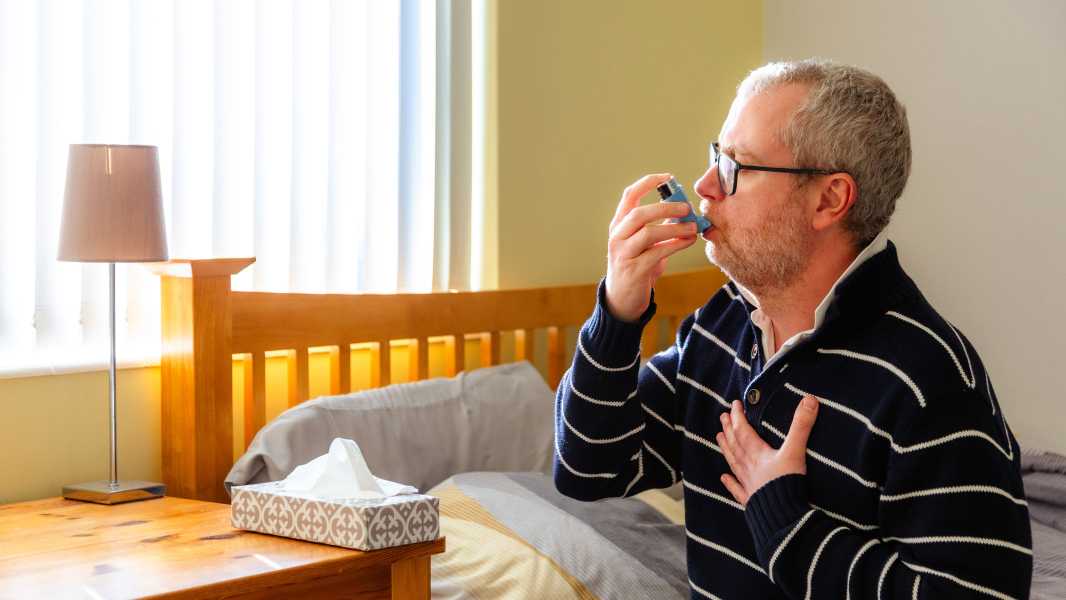
(Image credit: Getty Images)
According to the Asthma and Allergy Foundation of America, approximately 28 million people in the United States suffer from asthma. This chronic condition causes inflammation of the airways, which causes difficulty breathing, a feeling of tightness or pain in the chest, and wheezing. People with asthma may experience particularly severe breathing difficulties when respiratory infections, such as a cold or the flu, occur at the same time.
Although there is no cure for asthma, patients can control the condition by taking medications and avoiding asthma triggers. In the context of the latter task, some people use air purifiers to eliminate irritating pollutants that can worsen their symptoms.
But do air purifiers really help asthma? The answer is not clear.
“Air purifiers may be helpful for asthma by improving indoor air quality and reducing exposure to common asthma triggers,” Dr. Angela Hogan, chair of the Asthma Committee at the American College of Allergy, Asthma, and Immunology, told Live Science in an email. “For people with allergies to pets, mold, or pollen, reducing these allergens in the air may reduce airway inflammation and improve lung function.”
“However,” she added, “it is important to stress that the exact degree of improvement is difficult to assess because of the multiple influences of different factors.” No single environmental control measure can eliminate asthma symptoms on its own.
An asthma attack — a sudden worsening of symptoms in which the airways become inflamed and swollen to the point that a person can’t breathe — can be triggered by airborne allergens like grass pollen, mold spores, and pet dander. An air purifier can remove these particles from the air. However, air purification likely doesn’t eliminate all possible triggers, according to a 2023 review published in the journal Frontiers in Allergy.
“For example, air purifiers are less effective if sources of allergens remain [in the environment], such as on pets, old carpets, and upholstered furniture,” Hogan explained. The devices only clean particles from the air, but their original sources may remain elsewhere.
However, there is evidence that air purifiers equipped with high-efficiency particulate air (HEPA) filters may provide at least some relief for people with asthma. HEPA filters are designed to capture at least 99.97% of particles as small as 0.3 microns, Enesta Jones, a spokesperson for the U.S. Environmental Protection Agency (EPA), told Live Science. “Numerous studies using portable HEPA air purifiers have shown improvement in one or more allergy and/or asthma symptoms,” she added.
For example, a 2023 study published in the Journal of Asthma found that HEPA air purifiers in school classrooms improved lung function in some students with asthma. The researchers randomly assigned classrooms of students to receive an air purifier with a HEPA filter or a “dummy” device without a HEPA filter. After a year, they measured each student’s FEV1% (a metric used to assess the volume and speed of exhaled air) and found that it increased by an average of 4.22% in students exposed to HEPA filtration compared to those who did not receive the intervention.
The good news is that many of the best air purifiers on the market come with HEPA filters.
However, it is worth noting that some air purifiers may actually emit chemicals that can worsen asthma symptoms. The EPA recommends avoiding any devices that produce ozone, as the gas can irritate the lungs and cause other adverse health effects. Devices that may emit ozone include air purifiers with electrostatic precipitators, ionizers, plasma devices, or ultraviolet lamps without adequate coverage, the EPA warns.
This text is for informational purposes only and does not constitute medical advice.
Beam
Sourse: www.livescience.com





